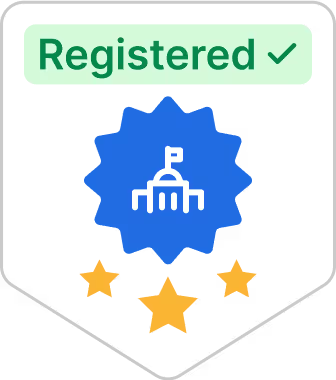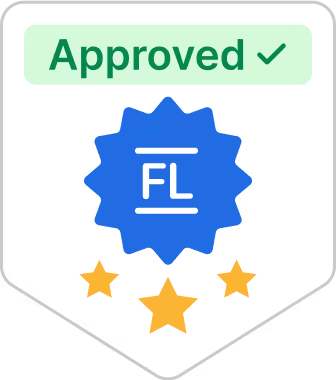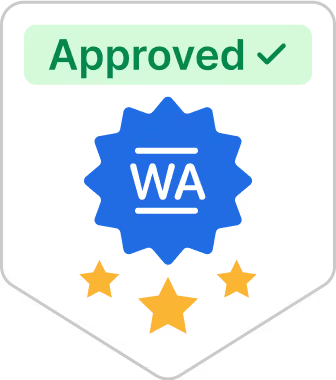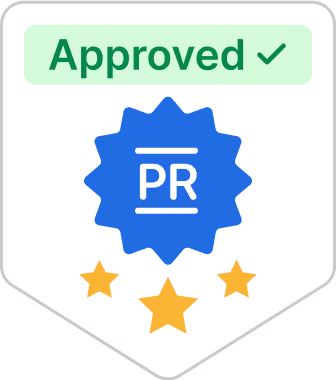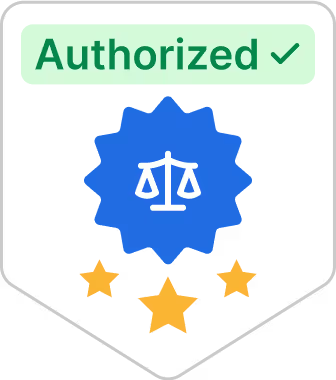What is an LLC and how does it work?

Starting a business is extremely rewarding, but not before you overcome your fair share of challenges. Once you’ve solidified your fantastic idea—maybe a fierce fashion line? A funky furniture store? An AI-powered marketing software?—you’ve still got work to do.
Once you lay down the foundation of your business, how do you protect your hard work?
Enter the LLC, also known as a Limited Liability Company. An LLC can help shield your business from pricey lawsuits, provide certain tax benefits, and offer flexibility in terms of ownership. So, before you ask how to start an LLC, let’s answer: what is an LLC and how does it work. Then, read on for an answer to these very questions, and plenty others.
How does an LLC work?
An LLC, or Limited Liability Company, is a type of business structure in which the owner(s) don’t have to personally shoulder the weight of the company’s financial burden—business debt and liabilities don’t become a personal liability ordebt.
LLCs are owned by “members,” though these don’t have to be individual people. A multi member LLC can also include corporations, other LLCs, and foreign entities, making LLCs a hybrid business structure. There are a few exceptions to who can become an LLC member, including banks and insurance companies.
So, what’s the point of this business structure? When unfortunate issues arise, like a lawsuit, the LLC can act as its own legal entity. The company has to defend itself and take on any financial obligations, not the individual owners. There are only a few exceptions to this rule; liability protection does not apply if:
- An owner personally injures someone
- An owner personally guarantees a loan or debt for the LLC that has defaulted
- Taxes for employee earnings were not submitted
- Negligent or illegal action causes intentional harm to the business or someone else
- An owner claims the LLC as a personal asset
These exceptions notwithstanding, the benefits of an LLC are relatively straightforward. Though guidelines vary by state, the main purpose is to maintain honest finances and create separation between personal and LLC assets.
Maintaining an LLC will be worry-free as long as the owner(s):
- Produce and submit accurate financial statements
- Entrust enough money for the LLC’s expenses
- Apply for EIN (Employer Identification Number) if the company has employees
- Open a company bank account for business finances, separate from personal finances
- Create and enact an LLC operating agreement
How is an LLC taxed?
Now that you know how an LLC protects your business in general, let’s focus on the benefits come tax season.
Under a C Corporation business structure, investors’ liability is limited; they can only lose the amount they invested, unrelated to the business’ failure. However, the business and the business owner are taxed separately: the gains are taxed as personal income and again as business profits. Essentially, the business owner-shareholder is taxed twice.
This all changes with an LLC—that’s one of its greatest perks.
An LLC is technically a “pass-through entity.” This means the government taxes members on their federal income tax returns. Any profits go straight to the members, and any business losses can be absorbed in their tax returns. Under the LLC model, the filing process is much more straightforward.
Depending on what type of business you run, your LLC may incur other taxations. For example:
- Some states require a “franchise tax,” either in the form of an annual fee or as a proportion of your LLC’s earnings.
- If you have employees working for your LLC, which is likely the case, you’ll need to apply for Income Withholding Tax as well as Unemployment Insurance Tax.
- If you sell goods or services, you’ll need a seller’s permit and the ability to collect the requisite state sales tax for these taxable goods.
So now this raises the question: how much does an LLC cost? Well, the LLC filing fee can range from $50 to $250, depending on the state you are in. In addition to that, LLC’s ongoing fees can fluctuate from spending nothing to $4,500.
How is an LLC structured?
We’ve covered the external requirements and benefits, but how does an LLC work on the inside, and what is the LLC structure? A business can exist as a single-member LLC with one LLC owner and multiple members involved, or as a multi-member LLC, with no limit placed on the number of owners.
In this way, an LLC is a flexible choice for a small business owner who wants the benefits of a corporate structure without the daunting title of a corporation and the inherent requirements. It works well for self-employed owners, as well as owners who want to have another manager running the business.
Ownership is usually divided according to two structures:
- A percentage of shares – This is how much of the company each person owns. For example, you might choose an easy 50-50 split between two partners, 20% each between 5 partners, or a tiered system. Ownership is usually divided relative to the financial contributions made or day-to-day operational responsibility, or a combination of both as well as other individual factors. Unlike corporate ownership, there are no rules dictating how or why you divide your company stake a certain way.
- A class of shares – This is essentially what level of power those shares grant you. You may have class A and class B units, for example, wherein class A owners have voting power (usually for owners and executives) while class B owners have a financial stake in the company but not a managerial one (for investors and other shareholders). Some companies keep things simple with just one type of ownership shares, as well.
What are the different types of LLCs?
Remember that each state has its own set of regulations regarding an LLC business. So check your state’s laws before deciding which type of LLC to start. With that said, here are a few different types of LLC structures you can choose from.
- Single member LLC or Sole Proprietorship
- Multi member LLC
- Member Managed LLC
- Restricted LLC
- Series LLC
- Family Limited Partnership
- General Partnership
- Anonymous LLC
- S Corporation
Start your LLC off right
Does it sound like an LLC may be the right choice for your business? Want to begin forming an LLC, but unsure where to start? Don’t miss out on your chance just because the process seems daunting.
Take control of your business liabilities and take full advantage of the tax benefits that come with an LLC. Fill out this EIN application form to apply for an LLC online today and will help you navigate LLC regulations and filing requirements to turn your fledgling startup into a growing enterprise.
Sources:
- IRS. Limited Liability Company. https://www.irs.gov/businesses/small-businesses-self-employed/limited-liability-company-llc
- Upcounsel. LLC Structure.https://www.upcounsel.com/llc-structure-chart
- Investopedia. What is a C Corporation? https://www.investopedia.com/terms/c/c-corporation.asp
- How to Start an LLC. What is an LLC?https://howtostartanllc.com/what-is-an-llc
- Legal Zoom. Ownership Percentages. https://www.legalzoom.com/articles/how-are-profits-split-in-an-llc












